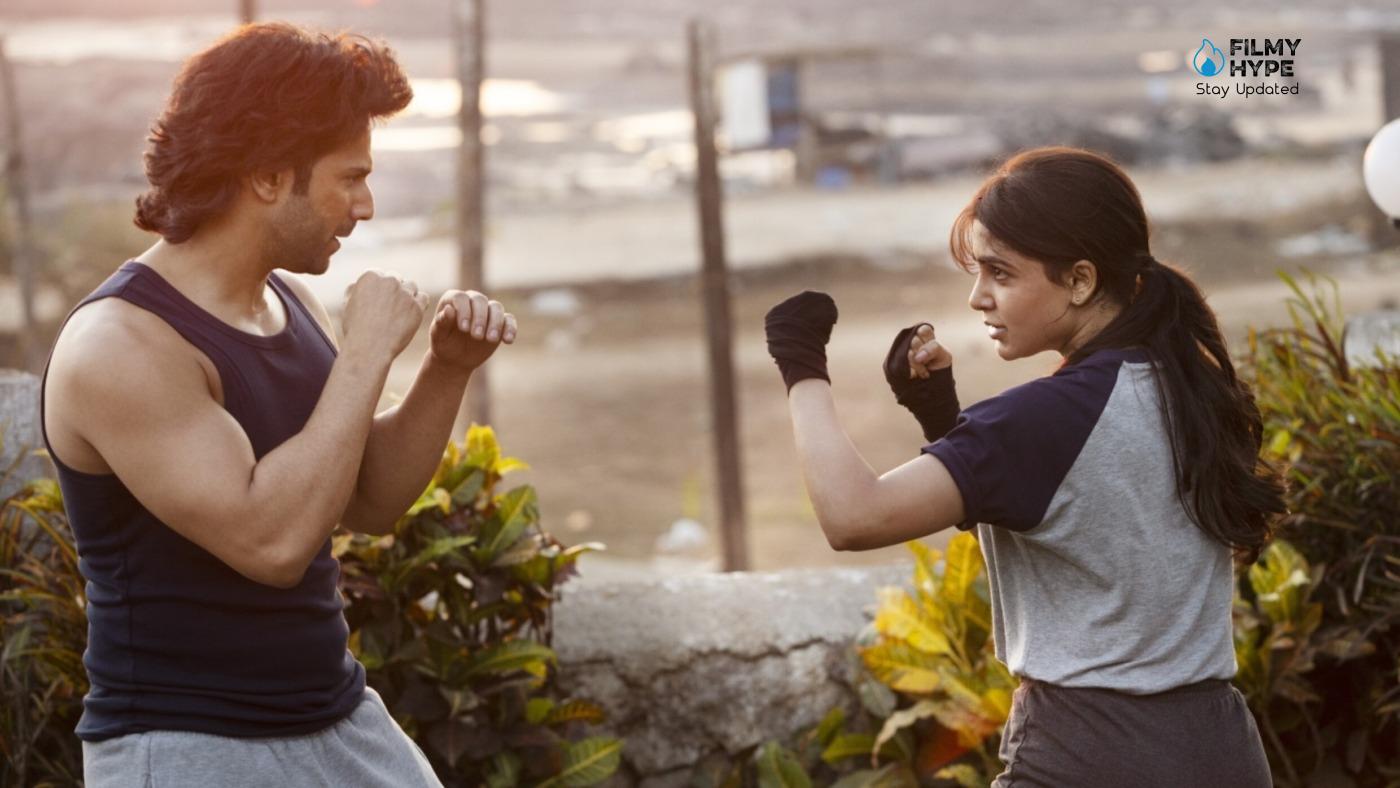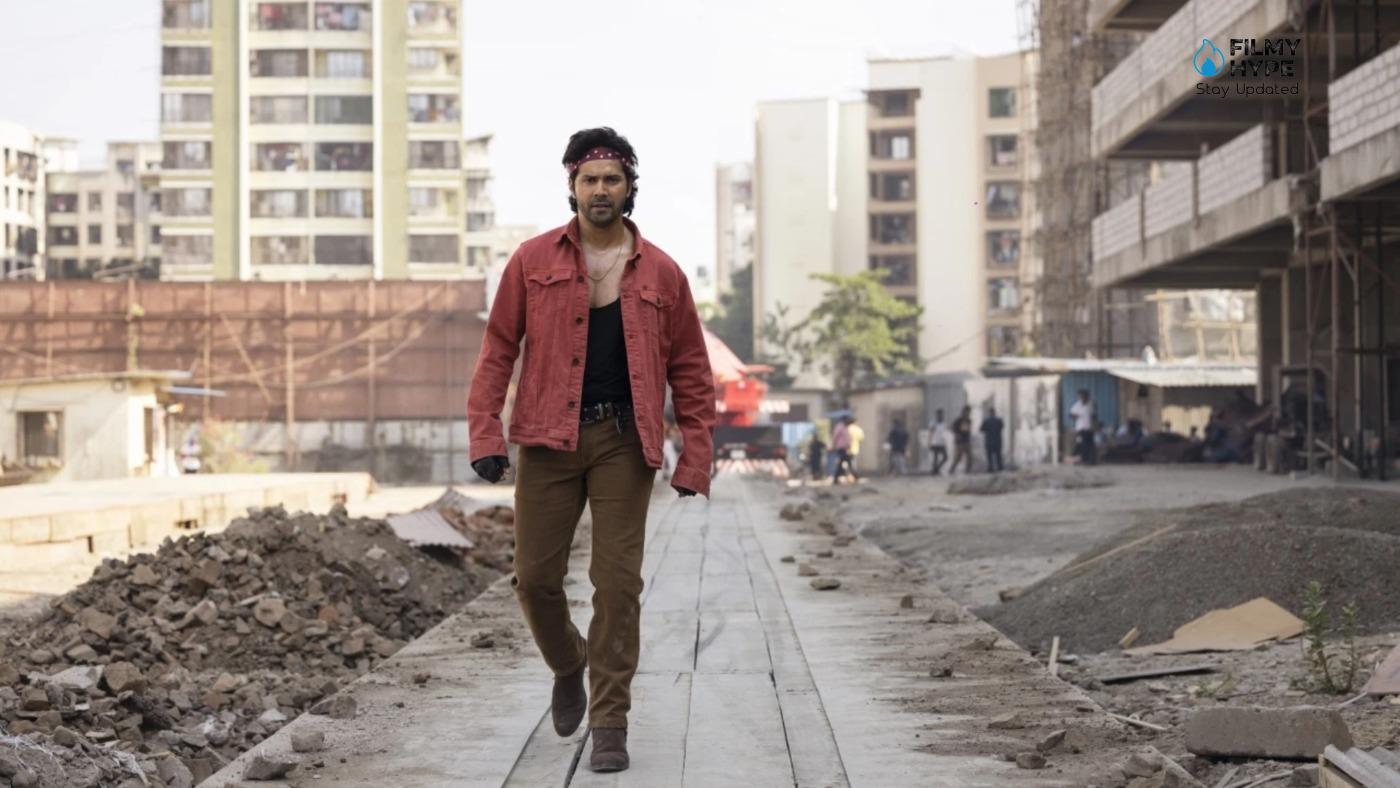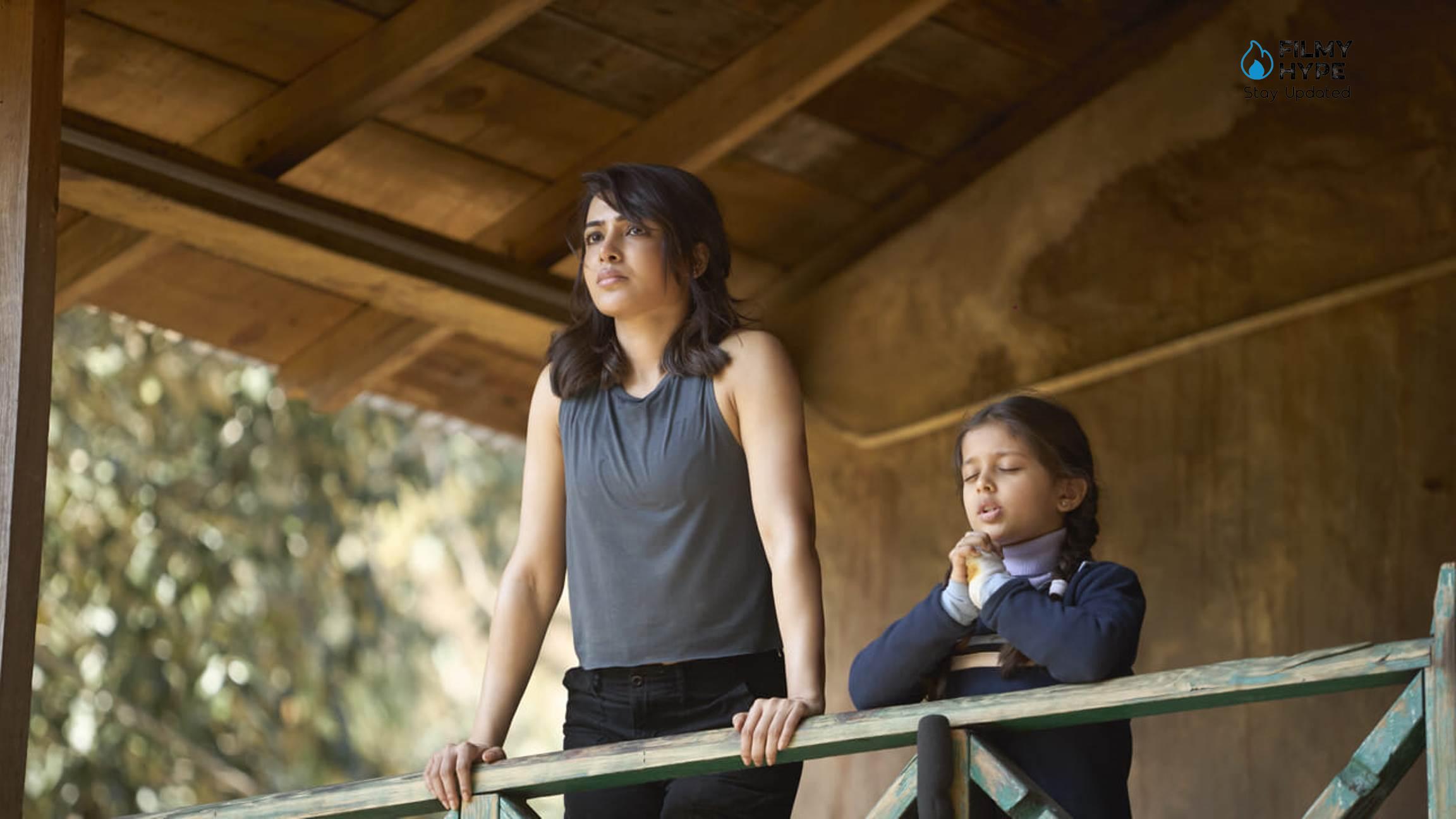Citadel – Honey Bunny Review: Prime Video’s Honey Bunny is Worth Watching
Citadel – Honey Bunny Review: Directed by the acclaimed duo Raj and DK, Citadel – Honey Bunny marks the beginning of a new phase for the Citadel franchise, extending its narrative into an Indian context. The highly anticipated spin-off of the Russo Brothers ‘ creation, available on Prime Video on November 7, brings Varun Dhawan and Samantha Ruth Prabhu to the screen in the roles of the protagonists. The two stars are the heirs of Matilda De Angelis and Lorenzo Cervasio who in Citadel: Diana entertained and amused us, but also left us breathless. And the premises of Honey Bunny leave no doubt: this new incarnation of the franchise also promises sparks. The rules of the game are obvious. In the absence of less pretentious alternatives, the basic structure, which can be called mythology, must not undergo substantial changes.

Citadel: Honey Bunny, a spin-off, derivation, the collateral story of the original, does not dare to question it. A true international franchise within which each national production could have created its version of the mother series, expanding the story with new events and characters. After the release of the Italian chapter Citadel: Diana on October 10, 2024, with Matilda De Angelis as the protagonist, from November 7 the episodes of Citadel: Honey Bunny are finally available, the all-Indian spin-off ready to give moments of fun and high adrenaline. This series runs in two timelines – 1992 and 2000. In the year 2000, we see that some people are after Honey and her daughter Nadia, and she runs away from them. This has a connection with her past. In the year 1992, she was a struggling actress. She would return home after getting rejected from every audition. On the set, she was friends with stuntman Bunny. Bunny is a stuntman from the outside but is leading a double life. He goes on a mission as a secret agent.
Citadel – Honey Bunny Review: The Story Plot
The story told by this series takes place in two different years. The first is 1992: Honey (played by Samantha) is an aspiring actress who has moved to Mumbai to try to break into the world of cinema and finally put her sad past behind her. Rahi Gambhir (played by Varun Dhawan) is an old friend of hers, who has convinced her to join him in Mumbai where he has, always been in the film industry, as a stuntman. What Honey doesn’t know is that Rahi also has another job, that of “Agent Bunny” for a secret organization. Honey will discover this when Bunny involves her in a mission, to stop the Talwar project, that will change their lives forever.
And so, we come to the second year told by the series. It is 2000, Honey runs a restaurant with her brother in the city of Nainital. And she has a daughter of about 7 years old, who is Bunny’s daughter. And what is her name? Nadia Sinh, aka the protagonist (played by Priyanka Chopra) of the mother series Citadel. In 2000 Honey no longer has anything to do with Rahi/Bunny or the secret agency, but her past has come back to visit her, with intentions that are anything but friendly. We won’t reveal more, but if you want to glean some other details you can watch the trailer for Citadel: Honey Bunny at the bottom of the article.

The pendulum swings between the present, which is 2000 or so in India, and a very recent past, the early 90s between Bombay (it was still called that) and Eastern Europe. The link with the original is the presence – here she is still a child and played by Kashvi Majmundar – of Nadia Sihn, the super spy played by Priyanka Chopra Jonas and supreme protagonist of Citadel paired with Mason Kane/Richard Madden. Nadia is the hidden star of the spin-off. We know that everything that happens here is fundamental to cementing her attitude, personality, and spy skills. But the focus is elsewhere. On her parents. They come from the world of entertainment and what is espionage, with its occasional personalities, apparent truths, and taste for artifice, if not an elaborate, morally dirty, and dangerous sub-genre of entertainment?
Honey (Samantha Ruth Prabhu) is an aspiring actress and dancer. She has a couple of extras on her side, and if she wants to find them on the VHS tape of the film, she has to know the length in advance, otherwise it is impossible. Bunny (Varun Dhawan) is a stuntman. He works more on the set than Honey, but it doesn’t change much because the stuntman arrives unexpectedly and is never seen in the face, so as not to break the enchantment of the show and not to betray the prestige of the star. Honey and Bunny are two incomplete people, in short. Unsatisfied, without a clear horizon ahead, but with remarkable potential. Their lives will change, catapulted – better not to specify how – into a high-intensity spy plot that will toss them back and forth between India and the former Yugoslavia and will make them two professional spies, the best in the business. Spies and parents. The pendulum swings history and sentiment, action and psychology.
Citadel: Honey Bunny Review and Analysis
The strength of the spin-off and the speech can easily be applied to Citadel: Diana, is that the little bit of prestige that is lost because it is not – culturally, linguistically, in terms of appeal and marketability – the mother series, paradoxically guarantees margins of maneuver and unexpected spaces of freedom. It is a warning that should shake the consciences of filmmakers around the world and can be summed up in the following terms: from slightly less great powers, comes slightly less great responsibilities. Less centrality means fewer covers and fewer titles, of course. But in the shadow of the giant with feet of clay called Citadel, a spin-off built in the right way finds a way to hide well. Citadel: Honey Bunny, just like its Italian counterpart, is a more successful and balanced series than the original precisely because it is less prestigious. It does not have to worry too much about the polished surface of the story, instead focusing on what is underneath. What interests the creators of the spin-off, even more than in Diana, is the deepening of the narrative dynamics, intertwining the classic spy story with the story, or rather the novel, of a life in formation.

The game is quite sophisticated because if it is true that the show contains vital information about Nadia Sihn’s past, the things we discover about her we learn indirectly. Through the story of her parents, for example, and her mother in particular. It is the strong point of the story. Citadel: Honey Bunny contains, starting from the title, an explicit manifestation of intent about a couple of protagonists and the indirect love for little Nadia, who is the sum of the characters, skills, and gaze of the two. It is not a perfect balance. Especially in the first half, about three episodes, it is Honey who emerges. The series is a novel of a life, the life of a young woman in search of a place in the world. At first fragile and unsure of the direction to take, then very, very different. It is a merit of Samantha Ruth Prabhu to be able to keep everything inside, the action, the feeling, a pinch of humor, the melancholy, being simultaneously a spy, a woman, a mother, and even more than this.
Citadel: Honey Bunny is about family, the limits of indoctrination, the need to feel part of something, and the risks of chasing that need without worrying about the consequences. Bunny’s story, about the strong but sticky relationship between Varun Dhawan and the (questionable) father figure played by Kay Kay Menon, is there to remind us of this. While it’s true that the second part of the story, animated by the need to reconnect to the original path – in terms of narrative and mythology – loses a bit of momentum, the premises of Citadel: Honey Bunny and its novelistic profile are a good start. First of all, we want to reassure you: that Citadel: Honey Bunny does not contain those kitsch and embarrassing scenes that we sometimes smile about when we see a video of some old Bollywood movie clip. This is a modern series, which has nothing to envy from Western productions.

The action scenes are believable and engaging (even though, honestly, Honey does not seem to have that physical strength she boasts of), as we said about Citadel: Diana and Matilda De Angelis. Which, however, let us express our tastes, and made us “spin our heads” much more vortically. But this, precisely, depends on the fact that we are fans of Matilda. Despite this, it should be noted that Honey Bunny does better than “our” Diana in making viewers passionate about the story and its characters. That coldness, that lack of involvement that we have noted in the Italian production is here supplanted by a plot that drags the audience and warms their hearts and minds. The narration on different temporal levels, which in Diana seemed forced at times without managing to make us empathize with the main character, here is functional to the construction of an emotional bond with Honey, Bunny, and little Nadia.
And speaking of Nadia, it is important to note that yes, in theory, each Citadel spinoff series is a standalone and is made to be seen and appreciated even without having seen the others. But knowing the past of the protagonist of the Mother series, also given its seasons, seems to us an important element to move with full awareness in the Russo Brothers’ Spyverse. In short, one more reason to watch this Indian TV series (but with an international scope). This, it must be said, presents in our opinion two possible critical points at this point “typical” of Citadel. The first is that, as in Diana, here too the temporal references are very precise (we also know what year Nadia was born, at this point), an inconsistency compared to the mother series which instead did not indicate a precise year in which the events brought to the screen took place.

The second is the now fixed pattern of the series of this narrative universe, with the “good” agency that must act to prevent a powerful weapon capable of upsetting the world from ending up in the hands of the “bad” agency: the “MacGuffin” is a very common narrative device, we know, but perhaps it would be a good idea to break (literally) the patterns before the Citadel series become copies of each other. But for now, and for Honey Bunny, there is still room to get passionate. The journey of your character is determined by how many and what kind of obstacles are coming his way. The problem with ‘Citadel‘ is that it puts all its money on the suspense of the climax. Until then, Honey and Bunny have everything in their hands. They get stuck in a scene and get out of it by the end of it. The hero’s journey will be memorable only when it is burnt like coal. The more difficult it is, the more you will be invested in his story. ‘Citadel‘ does not do this in the pursuit of climax, and by the time the climax arrives, you stop caring. Many coincidences that appear suddenly end the entire drama.
It is not that we are only writing letters of complaint against the writing of the show. There are some things here that should be fully appreciated. Like, while watching this series, I felt that it talks about the idea of a family instead of two agents. Honey and Bunny’s childhood was such that there was never any place for love and affection. In such a situation, Bunny meets Baba. His role was played by KK Menon. Baba is a textbook example of how a parent should not be. He feeds burnt chicken to his children to check their loyalty. He praises one in front of the other, saying that if he was there, I would not have to think. He tries to create a sense of competition. Then his adopted children cross the limits of right and wrong to get his love. The series should have explored this aspect a little more.

KK Menon has done a wonderful job. In some scenes, you will feel angry at Baba, seeing how poisonous he is. Varun Dhawan and Samantha Prabhu have also done a similar good job. There is a scene where Honey tells Bunny about his daughter. Varun has no dialogue in that scene. Just look at his face and you will understand that there here is a father who has never seen his daughter. From Samantha Prabhu’s actions to her actions, everything has been labeled cool. She seems to be in complete control of her character. Not even a single note goes up or down. It is also important to talk about Kashvi Majumdar who plays Nadia. She is a very smart actor. There is a scene where Nadia is trying to escape and get hurt. Then she immediately puts her finger on her mouth, as if she is trying to stop her moans of pain.
Citadel: Honey Bunny Review: The Last Words
Citadel: Honey Bunny is a spin-off (and a prequel) that breathes more and better than the original: less expectations, less pressure, more incisive storytelling, and credible psychologies. The two protagonists are good, with particular attention to Samantha Ruth Prabhu and her Honey. She manages to intelligently manage the transition between the character’s past and present, between action and feeling. As it was for Citadel: Diana with Matilda De Angelis, Citadel: Honey Bunny confirms that the future of the series is female. We were quite disappointed by this second Indian spin-off of the 2023 Mother series. We, who, on the other hand, had appreciated its Italian predecessor with Matilde De Angelis, all in all. Citadel: Honey Bunny struggles to go beyond some action scenes that, although well-shot, are far too generic. And it struggles to go beyond a narrative plot that entertains but does not strike for originality.
Cast: Samantha Ruth Prabhu, Sikandar Kher, Varun Dhawan, Kay Kay Menon
Director: Raj & DK
Streaming Platform: Prime Video
Filmyhype.com Ratings: 3/5 (three stars)







